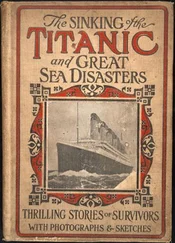Fourier’s imaginary world is undoubtedly libertarian in many respects, but as it appears in his most succinct formulation in Le Nouveau monde industriel et sociétaire (1829) it contains many contradictions. Women are to be liberated from patriarchal constraints, but they are still expected to serve the men domestically and sexually. Again, Fourier’s elegant tableaux of sexual and gastronomic delights reflect an aristocratic taste. His ‘amorous code’ manipulated by an elaborate hierarchy of officials in the ‘Court of Love’ is not for everyone. His description of sex appears somewhat mechanical and utilitarian. His child psychology is also naive and dogmatic. He not only denies infantile sexuality but asserts dogmatically that since ‘Two thirds of all boys have a penchant for filth’ they should be organized into ‘little hordes’ to do the disgusting and loathsome work. 34 Little girls of course like finery.
Finally, the arrangements of everyday life in ‘Harmony’ are described so minutely that its members are left little room for manoeuvre or renovation. Those who like privacy would not feel at home. While Fourier tried to foster individual autonomy and self-realization in allocating attractive work to suit particular tastes, the life he proposes is undoubtedly regimerited. Communal life is so well-organized that to some it might appear more like a prison than a paradise. The whole is orchestrated by the puppet strings of the master.
Fourier distributed his works to the rich and powerful, but to little avail. By 1830, nonetheless, he had managed to attract a small band of followers in the area around Besançon. With the help of the young Victor Considérant, he then managed to turn the small Fourierist group into a movement, winning over some disenchanted followers of Saint-Simon in 1832. In the following year the first community was set up, only to collapse soon afterwards. Only after his death in 1837 did Fourierist movements spring up in most of the European countries and in the United States. In France, Considérant helped to turn Fourierism into a movement for ‘peaceful democracy’; and it became a real political force in the last years of the July Monarchy and in the early phase of the 1848 French Revolution. In America, it spawned three dozen short-lived communities, including Brook Farm. Fourier’s ideas even influenced Alexander Herzen and the Petrashevsky Circle in Tsarist Russia. But while communities failed, and his revolutionary message got watered down, he did have an influence on the developing co-operative movement, especially in Britain. Most authoritarian socialists, however, went on to dismiss Fourier’s utopian visions, as Marx and Engels did, as a ‘fantastic blueprint’, despite its ‘vein of true poetry’ and satirical depiction of bourgeois society. 35
Nevertheless, despite all the regimented and static aspects of his utopia, Fourier was the most libertarian of the nineteenth-century French Utopians. His wish to transform repulsive work into meaningful play, his call for the free satisfaction of sexuality, his stress on the social and sexual minimum, and his organic cosmology continue to inspire anarchists and ecologists alike.
THERE HAVE BEEN TWO remarkable libertarians in Germany who scotch the myth that the German character is intrinsically authoritarian and given to State worship. While Hegel was denying the distinction between society and the State and arguing that citizens could only realize themselves through the State, his near contemporary Wilhelm von Humboldt narrowly drew the limits of legitimate State action. In the latter half of the nineteenth century, Friedrich Nietzsche too reacted against growing German nationalism and Bismarck’s attempt to create a strong centralized State. He developed one of the most eloquent defences of individualism ever made, and deserves a central place in any history of libertarian thought.
Humboldt’s reputation as a libertarian thinker rests on one book. But while The Limits of State Action (1792) came close to anarchism, Humboldt ultimately remained in the liberal camp. 1 The work was not published in English until 1854 as The Sphere and Duties of Government ; it considerably influenced John Stuart Mill in his essay On Liberty (1859). However, the anarchist historian Max Nettlau has called Humboldt’s work ‘a curious mixture of essentially anarchist ideas and authoritarian prejudice’. 2 More recently, Noam Chomsky has been inspired by Humboldt and through him his ideas have reached a new generation of libertarians and anarchists. 3
Humboldt absorbed the radical message of the Enlightenment, particularly Leibniz’s theory of human perfectibility, Rousseau’s belief that moral self-determination is the essence of human dignity, and Kant’s stress on the need to treat each individual as an end and never simply as a means. To this, he added an idealized version of the ancient Greek model of the fully rounded and harmonious human personality.
Humboldt’s starting-point is the creative individual and his ultimate aim is to achieve the greatest individuality with the widest freedom possible in a variety of situations. It is his belief that only the spontaneous and creative energies of the individual constitute the vitality of a society. Self-education is thus the key concept of his political theory. 4
Humboldt wrote:
The true end of Man or that which is prescribed by the eternal and immutable dictates of reason and not suggested by vague and transient desires, is the highest and most harmonious development of his powers to a complete and consistent whole. Freedom is the first and indispensable condition which the possibility of such a development presupposes. 5
The most desirable condition is therefore the one in which each individual ‘enjoys the most absolute freedom of developing himself by his own energies, in his perfect individuality’. 6 This principle must be the basis of every political system.
While Humboldt saw the individual and society in organic and aesthetic terms – as flowering plants and works of art – he insisted that the State is nothing more than a piece of machinery. Like later anarchists, he distinguishes between the State and society, or what he calls the State constitution and the national community: ‘And it is strictly speaking the latter – the free cooperation of the members of the nation – which secures all those benefits for which men longed when they formed themselves into society.’ He further recommends small associations, since in a large one a person easily becomes merely an instrument: ‘The more a man acts on his own, the more he develops himself.’ 7
The basis of Humboldt’s criticism of government is that it restricts personal autonomy and initiative:
Whatever does not spring from a man’s free choice, or is only the result of instruction and guidance, does not enter into his very being, but still remains alien to his true nature; he does not perform it with truly human energies, but merely with mechanical exactness. 8
Freedom, he argued, ‘is but the possibility of a various and indefinite activity’; Humboldt was therefore concerned with ‘greater freedom for human energies, and a richer diversity of circumstances and situations’. 9
The paternalist State which seeks the positive welfare of the citizen is therefore harmful. By treating its subjects as children, it prevents them from learning from their own experience, it lessens the quality of their experience by imposing its own uniform character, and it weakens their initiative and independence. By trying to do good, it saps energy and weakens sympathy and mutual assistance. It can never improve the morals of its citizens since ‘all moral culture springs solely and immediately from the inner life of the soul’ and ‘The greater a man’s freedom, the more self-reliant and well-disposed towards others he becomes.” 10
Читать дальше












